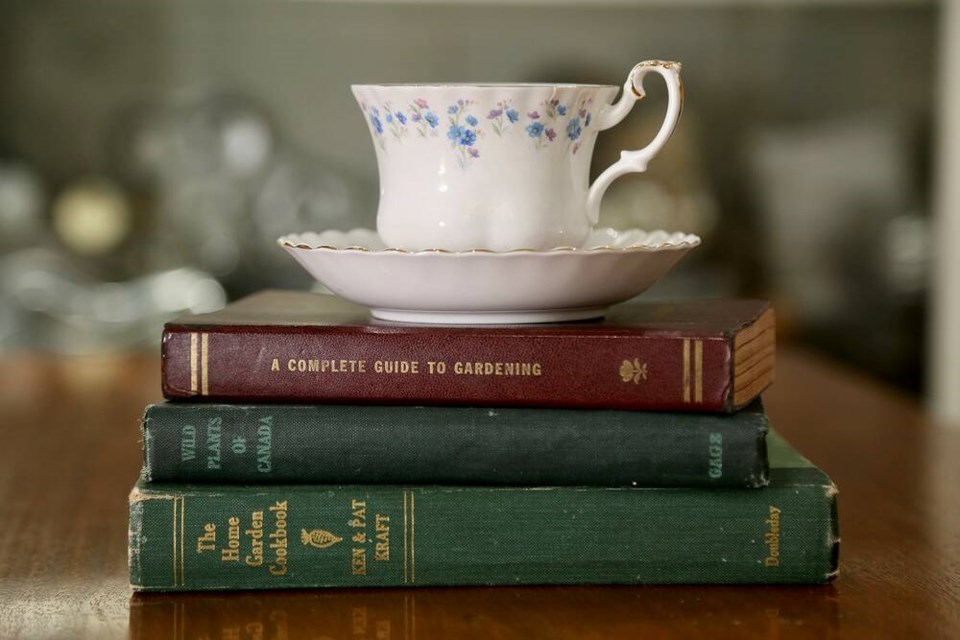One of our daughters ran across a Nordic tradition of gifting books on Christmas Eve – the inspiration no doubt, behind generations of families reading and relaxing together by the fire. She proposed that we adopt this charming tradition, and also that we purchase used.
“The forest thanks you” were the first words that came to me. I am heartened by the growing awareness of excess and waste that younger people carry with them as they build their own traditions. I am hopeful that, as a collective, they can find their way back to the time not so long ago when escalating economic growth and conspicuous consumption of non-essential “things” were not universal metrics of success.
Author Robin Wall Kimmerer expresses the sentiment thoughtfully in her book Braiding Sweetgrass: Indigenous Wisdom, Scientific Knowledge and the Teachings of Plants. “If all the world is a commodity, how poor we grow. When all the world is a gift in motion, how wealthy we become.”
I can see a shift in thinking and in values, and in the retail sector. Even here, on the prosperous North Shore, boujee new-to-you boutiques offering artisanal handmades alongside gently used clothing, shoes and accessories occupy pride of place on High streets. Thrift stores are packed with fun retro and designer merchandise, and used book stores burst at the seams.
Gardeners in particular are aware that we cannot take without also giving back, and that the earth and her resources are finite. “Use renewable resources and services” and “produce no waste” are two fundamental permaculture principles.
Young people, I’ve noticed, are gardening, knitting and crocheting, baking and preserving, fishing and camping, and cooking at home with pride and enthusiasm. Increasingly, they are finding peace and delight in creating with their hands and doing without. How lovely.
There is time still before Christmas for the older majority of us (present company included) to shift our thinking, our habits and our language, and say proudly that, “My gift to you is nothing new.” This then might inspire a conversation and, perhaps, reciprocity. And so it might go as things change for the better.
Nature teaches us to take only what we need, that the metrics for sustainable economic growth reflect community health, moderation, humility and gratitude.
Indeed life is busy. We are busy, and it is easier and faster to buy new. We all do it, but we don’t have to always. We simply cannot. It isn’t sustainable, and it isn’t fair to our children and to all future generations. Knowing this should make it easier to start saying no to new – incrementally at first, and eventually by nature.
Kimmerer writes beautifully: “We are showered every day with gifts, but they are not meant for us to keep. Their life is in their movement, the inhale and the exhale of our shared breath. Our work and our joy is to pass along the gift and to trust that what we put out into the universe will always come back.”
Need inspiration? Friends and family who garden or cook might enjoy: vintage gardening books paired with a charming old tea cup, jute pole bean twine tucked inside an antique canning jar with well-worn snips and some heirloom beans seeds, a beautiful old English tea tin containing homegrown mint and lemon balm tea, or a collection of thrift store cookie cutters bundled with a mid-century Cookie Lovers cookbook. High value, low cost, low environmental footprint.
This holiday season, as we count our blessings and reflect on a world gone mad with rage and injustice, let’s upset the balance with nothing new.
Laura Marie Neubert is a West Vancouver-based urban permaculture designer. Follow her on Instagram @upfrontandbeautiful, learn more about permaculture by visiting her Upfront & Beautiful website or email your questions to her here.
For a taste of permaculture, watch the video below:




